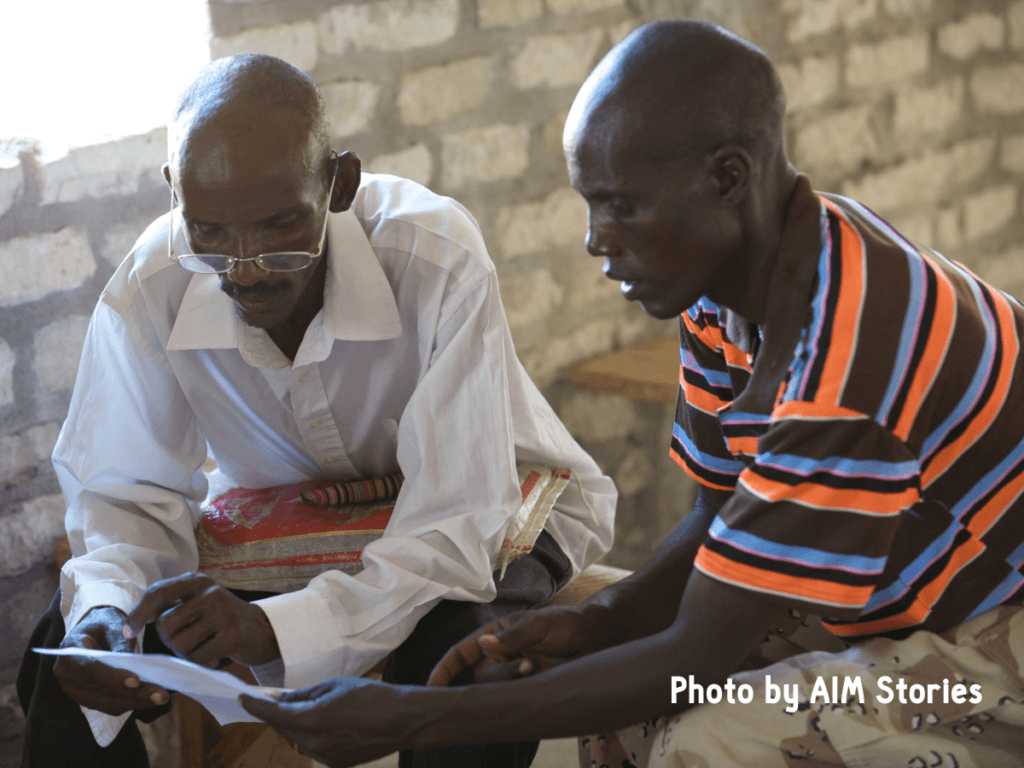Language learning and culture
AfriGO Team

When a group of Kenyans and Malagasies were sent to a third country to serve as missionaries, it was a lot harder to communicate than they imagined. One team member already knew the trade language, and most had five or six other languages under their belts. Some thought they would just “pick up” the local language as they went, but it didn’t happen that way!
The locals expected them to understand immediately. “They think we are the ones who should know their languages quickly because we are African,” said Naissa*, from Madagascar. Some team members spoke a language similar to the native language, and the locals assumed they’d understand easily, but team member Deborah* lamented, “Unfortunately for me, this was not the case!”
Learning a new language can be humiliating, something the team members discovered early. Deborah said, “I was unprepared for all the time I would need to spend in the community looking silly and embarrassing myself with my poor language.” One must begin like a child, which can be hard when you already have education and professional training, and are well- regarded back at home. It is even more difficult when the locals can’t understand why it is so hard for you to learn a language as simple as theirs.
Members of the team used different methods to learn, based on what was available and how they had learned languages before. Sarah* said, “Listening and speaking is what I use a lot.” Deborah found that “Sitting once a week with a teammate who speaks the language helped me move forward a little better.” Naissa has a different approach: “Learn only a few words that are very important in communication and then you’re off! Do a language bath with people who speak the native language every day before going far into theory.” We asked the team for some tips:
- “Utilize the available materials for the language.” (There may be recordings or grammar apps.)
- “Sitting with and listening to conversations by locals helped in getting more familiar with how the language is spoken.”
- “I attend language concentration weeks done by our team and listen to local radio stations.”
- “With Scripture available in the local language, I sometimes read from it or listen to it.”
Every member of the team advised that time spent in the community is vital for language learning and practice. However, one member shared her difficulty: “I am from a culture where we do not approach people in random contexts but are usually ‘paired’ with others through natural settings such as a classroom, a small group, a shared compound, etc.” She overcame that barrier by using a language helper.
Language helpers are a valuable asset, and all of the team used them in some way. It is best to have a trained helper. If your helper isn’t trained, you will have to guide him or her in how best to help you. See the listed resources for guidelines on some of the programmes used often.
Above all, heed Deborah’s advice: “It’s okay if it seems uncomfortable or embarrassing. It is part of the process. The heart of learning a new language is finding the balance between setting for yourself goals that are both small enough to be achievable and uncomfortable enough to push you forward!” The reward? Understanding the heart of the people you have been sent to minister to. There are no shortcuts!
There are many ways to learn a language, and one very organized method is the Growing Participator Approach (GPA). With a trained language helper, learn useful words while doing them (actions) and putting them together. Many people find this approach practical. This website explains and provides free guides: https://www.growingparticipation.com. Wycliffe Bible Translators has a short article on the GPA and language lessons: https://bit.ly/3ZAgNMB
Language180.com is a practical site with ideas on how to learn language, and guidelines on how to set up your language lessons. Online software/websites: These are generally available only for the major languages and can be expensive. Formal classes may also be offered in your home country or in a larger city in your target country.
*Not their real names
